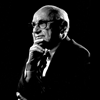A presidential commission has just made official what you and I have long known from experience. The Post Office "each year… slips further behind the rest of the economy in service, in efficiency, and in meeting its responsibilities as an employer."
The commission recommended that the Post Office be converted from a government department to a nonprofit government corporation. That might improve matters some, but since the Post Office would still be a monopoly and a government organization, it would remain high-priced and inefficient. A far better solution is one I suggested many months ago (Newsweek, Oct. 9, 1967) — simply repeal the present provision making it illegal for private enterprise to provide mail service. Competition would quickly set modern technology to work in the transmission of mail, and simultaneously lower the cost to the consumer. The government system would have to shape up or ship out.
But neither the one proposal nor the other will be adopted. The facts of political life that make this prediction a near-certainty were brought home to me when I was writing my earlier column on the Post Office. Why not, I thought, use it to persuade a congressman to introduce a bill to repeal the present prohibition on private delivery of mail? That would have started desirable legislation on its way, made the column more topical, and given the Congressional sponsor some publicity. So I spoke to a number of friends in Congress.
All were favorable to the substance of the bill, yet none was willing to introduce it. As one congressman said to me, "Can you suggest any unions we might conceivably persuade to testify in favor of it?" I could not do so.
Strong pressure groups will oppose changing present arrangements: the postal unions that have become experts in lobbying before Congress; the users of third- and fourth-class mail, who fear that the subsidy they now enjoy would be threatened if Congress no longer finances postal deficits.
No strong pressure groups will favor the proposed changes—which serve only the widespread general interest of the public. If the proposed changes were made — if, for example, private competition were permitted — pressure groups would emerge. Enterprises that succeeded in the new business and their employees and customers would become such groups. But these are only potential, not actual.
A congressman has limited time and influence. It is wise for him to husband that time and influence to promote measures that have some chance of being adopted, or, at least, of bringing him some political support. What can he gain by the purely quixotic gesture of sponsoring a bill to introduce competition into the postal service? Only the active hostility of present special interests. True, many more persons would be benefited than would be harmed and the aggregate benefit would greatly exceed any transitional harm. But, and it is a big but, the few persons who believe that they would be harmed will be aware of that fact, and each will expect significant harm, so it will pay them to fight the bill. Most persons who would benefit will not be aware of that fact. Even if they were, the benefit to most would be small. Hence, they are unlikely to devote much effort to promoting the bill — or even to have their vote influenced by its introduction. Their vote is likely to be determined by the matters with respect to which they are members of special interest groups.
Many citizens regard it as a paradox that a democratic government, supposed to promote the general welfare, should enact so many measures that promote special interests. It is not a paradox. It is the result to be expected when government engages in activities that have concentrated effects on small groups and widely diffused effects on the rest of the citizens. A majority rules in a political democracy, but the majority that rules is typically a coalition of special interests — not a majority promoting the general interest.
In the heyday of nineteenth-century capitalism, William H. Vanderbilt a railroad tycoon, is said to have remarked, "The public be damned" to an inquiring reporter. That may have been his attitude but it was never an accurate description of how private enterprise behaved. Competition saw to that. Enterprises that damned the public did not survive for long. But however accurate it may have been then, today the phrase fits Washington to a T.
Copyright Newsweek, Inc., Aug. 5, 1968. Reprinted by permission.

